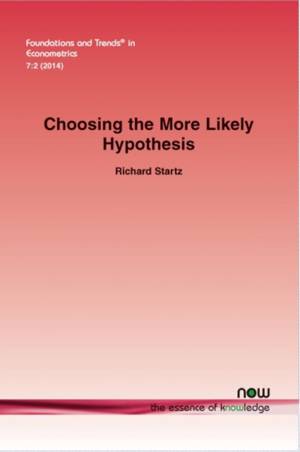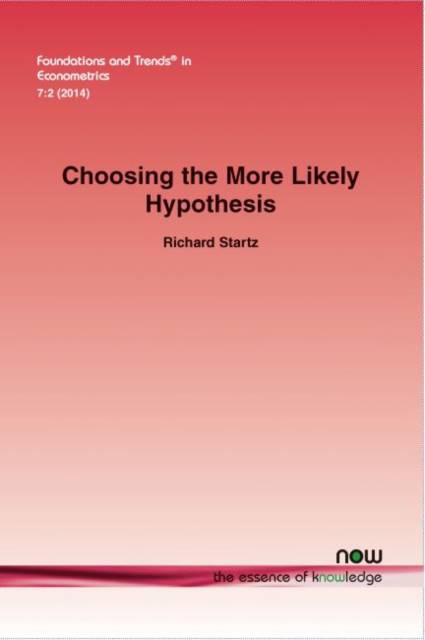
En raison d'une grêve chez bpost, votre commande pourrait être retardée. Vous avez besoin d’un livre rapidement ? Nos magasins vous accueillent à bras ouverts !
- Retrait gratuit dans votre magasin Club
- 7.000.000 titres dans notre catalogue
- Payer en toute sécurité
- Toujours un magasin près de chez vous
En raison de la grêve chez bpost, votre commande pourrait être retardée. Vous avez besoin d’un livre rapidement ? Nos magasins vous accueillent à bras ouverts !
- Retrait gratuit dans votre magasin Club
- 7.000.0000 titres dans notre catalogue
- Payer en toute sécurité
- Toujours un magasin près de chez vous
Description
Much of economists' statistical work centers on testing hypotheses in which parameter values are partitioned between a null hypothesis and an alternative hypothesis in order to distinguish two views about the world. Our traditional procedures are based on the probabilities of a test statistic under the null but ignore what the statistics say about the probability of the test statistic under the alternative. Traditional procedures are not intended to provide evidence for the relative probabilities of the null versus alternative hypotheses, but are regularly treated as if they do. Unfortunately, when used to distinguish two views of the world, traditional procedures can lead to wildly misleading inference. In order to correctly distinguish between two views of the world, one needs to report the probabilities of the hypotheses given parameter estimates rather than the probability of the parameter estimates given the hypotheses. Choosing the More Likely Hypothesis shows why failing to consider the alternative hypothesis often leads to incorrect conclusions. It shows that for most standard econometric estimators, it is not difficult to compute the proper probabilities using Bayes theorem. Simple formulas that require only readily available information in standard estimation reports are provided. The author emphasizes that frequentist approaches for deciding between the null and alternative hypothesis are not free of priors. Rather, the usual procedures involve an implicit, unstated prior that is likely to be far from scientifically neutral.
Spécifications
Parties prenantes
- Auteur(s) :
- Editeur:
Contenu
- Nombre de pages :
- 90
- Langue:
- Anglais
- Collection :
- Tome:
- n° 17
Caractéristiques
- EAN:
- 9781601988980
- Date de parution :
- 20-11-14
- Format:
- Livre broché
- Format numérique:
- Trade paperback (VS)
- Dimensions :
- 156 mm x 234 mm
- Poids :
- 136 g

Les avis
Nous publions uniquement les avis qui respectent les conditions requises. Consultez nos conditions pour les avis.






